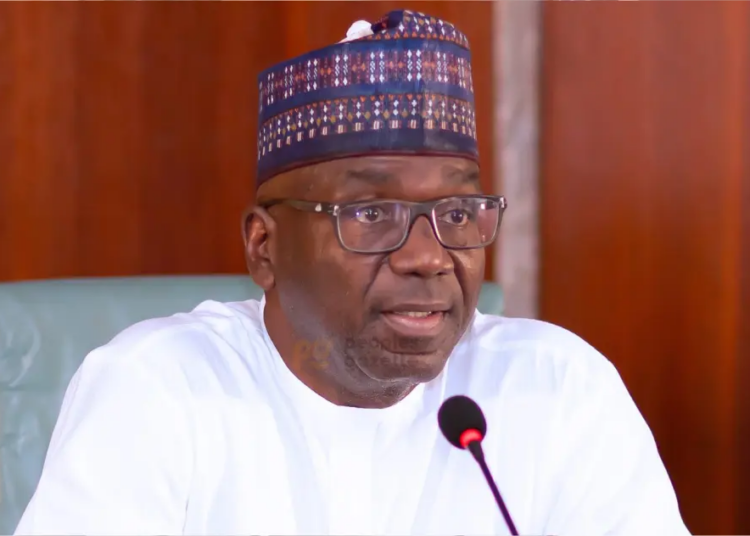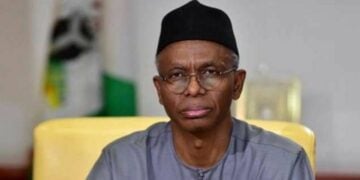State governments are yet to allocate funds, set up structures and initiate the exercise of capturing poor and vulnerable citizens in state generated social registers to unable cash transfers as part of palliatives to cushion the removal of the subsidy on Premium Motor Spirit by the federal government.
This is in spite of the fact that the governors in the July 20 National Economic Council meeting unanimously rejected to use National Social Register that was put together by the National Social Safety Nets Coordinating Office (NASSCO) over several years with support from the World Bank
The Bola Tinubu government had planned to make cash transfers of N8000 each to 12 million vulnerable households from an $800 million World Bank loan and N500 billion approved by the National Assembly.
President Tinubu, however, later ordered for a review of the planned N8000 cash transfers after a public outcry over the meagerness of the budgeted amount. The presidency has however since remained silent both on the c ash transfer and efforts of the state governors to ditch the National Social Register.
Reports suggest that some states are relying on the federal government palliatives and have their own programmes to cushion the effect of the subsidy removal, like adding N10,000 to the salaries of civil servants.
Investigation by LEADERSHIP Sunday however show that not a single state has taken the necessary step to offer the Tinubu government a credible replacement for the National Social Register which the governors have discredited and waiting for the states to generate their own registers could mean poor Nigerian might have to wait till the end of the year to get benefits from subsidy palliatives.
The Anambra state governor, Professor Chukwuma Soludo describes the use of the proposed federal government social register as inappropriate.
He stated that the social register compiled federal government personnel is open to manipulation in a manner that those captured as the “poorest of the poor in our society” in the register might not be the real poor people targeted.
He rather stated that for the the actual people targeted under the programme to captured in the register, the compilation of the social register has to be done by the officials of the component local governments across the country, as according to him, they have access to the “formal and informal mechanisms” for communicating to their local populace, and, determining their poverty levels.
He, also, faulted the proposal to run the social register using digital mechanism as according to him, virtually all those targeted at the programme who he stated constituted about 25 percent of the country’s over 200million people do not have both bank accounts and telephones , therefore, it would be difficult to distribute any government poverty alleviation items to them either through digital means or the banks.
Besides, Professor Soludo insisted that the social register if compiled as being proposed by the federal government would lack “integrity test”.
Press secretary to the governor, Mr. Christian Aburime said Soludo has explained the position of governors during the briefing after the last national executive council meeting.
Soludo said, “The poorest of people, about 25 percent of Nigerians are totally compact, and, they don’t have access to telephones, these are the poorest of the poor of our society”.
Soludo argued, “We think that we should go back to the drawing board. And if you are delivering a such national or federal programme, it has to be generated via the constituent governments that are there at the grassroots; they will generate the social register using formal and informal mechanisms that are comprehensive, that meet creteria of the stress test; that you can call our people in the village, and, people will come and confirm that these are vulnerable people if you are targeting the vulnerable people.
But in a number of states, the only available structures for capturing poor citizens are those initiated by National Social Safety Nets Coordinating Office
Niger State has a special coordinating unit in charge of Social support programmes and currently contains data from all the 25 Local Government Area, political wards.
It was however gathered that, not all the communities were covered due to security challenges in some parts of the states.
Data however obtained from the National Social Safety Nets Project (NASSP) coordinating office signed by the acting Coordinator Abubakar Mohammed Kwatachi
Showed it comprises 308,407 households and 1,321,295 individuals.
The Social Register serves as a comprehensive database of Poor and Vulnerable Households (PVHHS) containing information about the socio – economic status of each household and their respective communities.
Consequently the data revealed that it plays a crucial role in identifying potential beneficiaries of policies and social programmes aimed at addressing poverty and vulnerability.
The Kwara State government on its part, says will soon announce the modalities for the building of social register for distribution of palliatives to the people to cushion the effect of fuel subsidy removal in the state. Meanwhile, large number of the poor are awaiting the palliatives.
The chief press secretary to governor of the state, Rafiu Ajakaye disclosed this while rolling out the government’s approved palliatives for the civil servants, artisans and other groups in the state.
“Modalities for occasional distribution of food to poor and most vulnerable households are to be activated in the next few days.
“This shall be nonpartisan, and would be coordinated by a government team to be supported by respected stakeholders who would get inputs from traditional rulers, religious bodies, market leaders, trade unionists, and community based organisations to generate the lists of beneficiaries and disburse accordingly,” Ajakaye stated.
LEADERSHIP Sunday, however, gathered that the State Social Investment Programme (KWASSIP) will be responsible for registering the petty traders and artisans that would benefit from the N500m worth of conditional support that the governor has approved as palliatives for the medium and small enterprises in the state.
In Katsina, the tate government is yet to assign responsibility for collecting names and data for its own social register, but the last government under Aminu Bello Masari, already has a compiled record of poor households in the State Empowerment and Social Intervention Agency.
Findings showed that the agency has over 27, 000 records of poor and vulnerable households from the 34 local government areas and 361 ward levels, and they often benefited from every intervention in the state.
Aside from this, there are also indications of the State Empowerment and Social Intervention agency has installed data, phone numbers, and account details including the BVN of all the beneficiaries, mostly women and youths across the state.
Efforts to get comments from the agency failed, as the Governor is yet to appoint the Senior Special Adviser to the office at the time of filling this report.
The Rivers State government is also yet to begin the building of social register as directed by the National Economic Council (NEC) during its last meeting.
An official of the state government, who pleaded for anonymity, told LEADERSHIP Weekend, that although Governor Siminalayi Fubara was represented at the NEC meeting by his deputy, Professor Ngozi Ordu, nothing has been done.
He said: “Our governor was represented by his deputy at the meeting. Although nothing’s has been done about the social register, we believe that very soon the state government will take action on that.”
In Bayelsa State, the State Operations Coordinating Unit (SOCU) which is an agency under the Ministry of Budget and Economic Planning is saddled with the responsibility of collecting and updating the social register in the state.
According to the Permanent Secretary, Ministry of Budget and Economic Planning, Dr. Wisdom Ebiye Sawyer, who spoke to LEADERSHIP Sunday in his office in Yenagoa, the majority of the populace see social register as beneficial register.
He further explained that the social register gives some variables, some data about these households and members of the households from which one can harvest the beneficial register for a particular purpose that the government or any intervention agency want to use it for.
He said, “Social register is not only for the poor and vulnerable as we think. Beneficial register is the one that has the vulnerable and those people that have maybe challenges. So you harvest it from the social register. It has about 138 indicators; we are looking at both economic and non-economic.
“For example, we want to know if you are working or not working, how many members are in the house, how much do you earn and all the rest, that is if you are breaking down to economic. For non economic, you can look at other things, the household variables around the households whether you have some social amenities.
“Let’s say you have a particular programme, maybe you want to do cash transfer, you now know that among these people, there are people that are vulnerable having look at their socio-economic status, you then harvest those ones having looked at the data on the social register.
“So it gives us a guide among the people we have collated, which of the households that are poor and vulnerable, so we can give appreciate interventions if we want to assist them in terms of food and other interventions by different agencies
“In the process of doing this social register, the communities are involved. We do community sensitization, involve community members, so it is difficult for you to give us somebody that is rich and somebody that is poor and we go for authentication and verification”, he said.
While speaking on the current national social registry project like the poor and vulnerable registration, Sawyer said the state is currently carrying out an updating exercise that cuts across the 8 local government areas in the state, from the LGAs, down to the Wards which consists of communities, households and houses inside.
He said, “We have about 130,997 households, 503,756 members in 76 Wards that are updated as at yesterday. 26 political Wards are yet to be updated. It is an ongoing process because it requires funds for the team to go to those households to get all these things.
“If we have the funding which is what SOCU needed to complete the process, they would have completed the 26 Wards. There is an initial register before, now we are updating it. You know some people died, some people traveled and all that. So the process is still on. If we have the funds now as we speak which the governor is committed, in less than 3 weeks or one month, we can update the remaining 26 Wards.”






